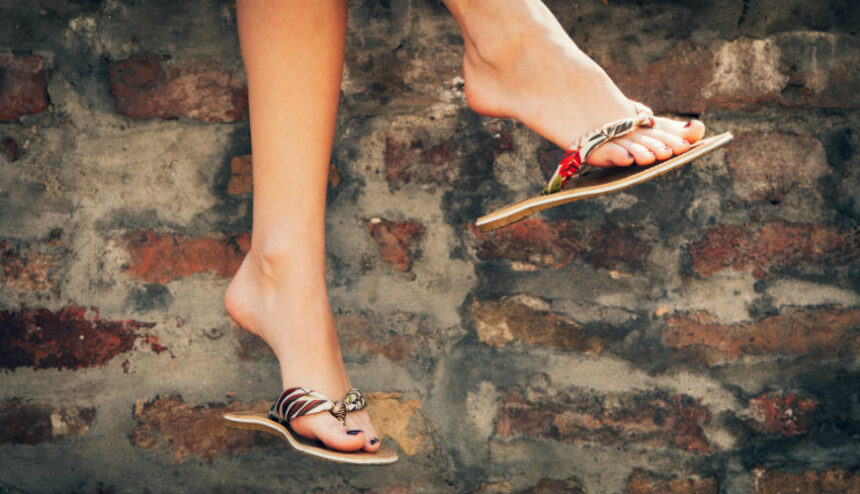By Alissa Redding, DPM, Podiatrist
 Images of relaxing at the lake, mindlessly slipping on flip-flops to run an errand, and the smell of fresh-cut grass fill our senses. Between then and now, carefully choosing the right type of sandals and flip-flops can prevent foot issues that could derail your summer plans!
Images of relaxing at the lake, mindlessly slipping on flip-flops to run an errand, and the smell of fresh-cut grass fill our senses. Between then and now, carefully choosing the right type of sandals and flip-flops can prevent foot issues that could derail your summer plans!
You Can Flip Flop…Sometimes
Flip-flops are very popular but commonly described as one of the worst shoes for your feet. On the flip side, there are more and more higher quality options to choose from. A flip-flop that is sturdy and made of natural materials like leather helps protect the foot and minimizes blisters. A thicker sole that prevents the shoe from being bent in half is also beneficial. To prevent soreness and injuries, avoid wearing your flip flops for walking long distances, and take the time to switch footwear before doing yard work or playing sports. Since this type of shoe tends to wear out easily, you should replace them each year.
The Best Sandals for Foot Health
To be the best, sandals should have a rubber sole and good traction to prevent slipping. Like flip flops, a sole that cannot be easily bent in half is better for your foot. Sandals should be fairly flat, although a slight wedge under two inches is fine for most people. Any arch support provided is a bonus for some and a necessity for others. Further, sandals with comfortable straps will most likely become your “go to” pair. Of course, like any footwear you try on, it needs to fit well. Your toes, heel or sides of your foot should not be peeking over the edge. To avoid sore feet or long-term foot issues, keep these tips in mind – regardless of how cute or discounted they are.
Foot Care 101
- Going Barefoot? Be Careful—You probably know from experience that going barefoot outside can result in cuts or scrapes to your feet. Additionally, keep in mind that some public places, such as locker rooms and swimming pools, may have bacteria and fungi on the floors that you could pick up, even when they look clean and well-maintained.
- Wear Appropriate Shoes—Choose the right pair for the right activity. Shoes that are tight, restrict circulation, or trap sweat around your skin may be harmful. If your shoes become wet, dry them before wearing them again.
- Maintain Good Hygiene—Regularly trim your nails, inspect your feet for cuts or injuries, and keep them clean and dry.
- Health Conditions—Poor circulation, diabetes, and other medical conditions can also affect your feet. Your healthcare provider may recommend special foot care. Your risk of infection may be higher, so caring for your feet is important.
By following these guidelines for foot health and buying the best sandals for your feet, you can avoid blisters, injuries, and infections that could stop you from enjoying the better weather ahead and your favorite summer activities!

